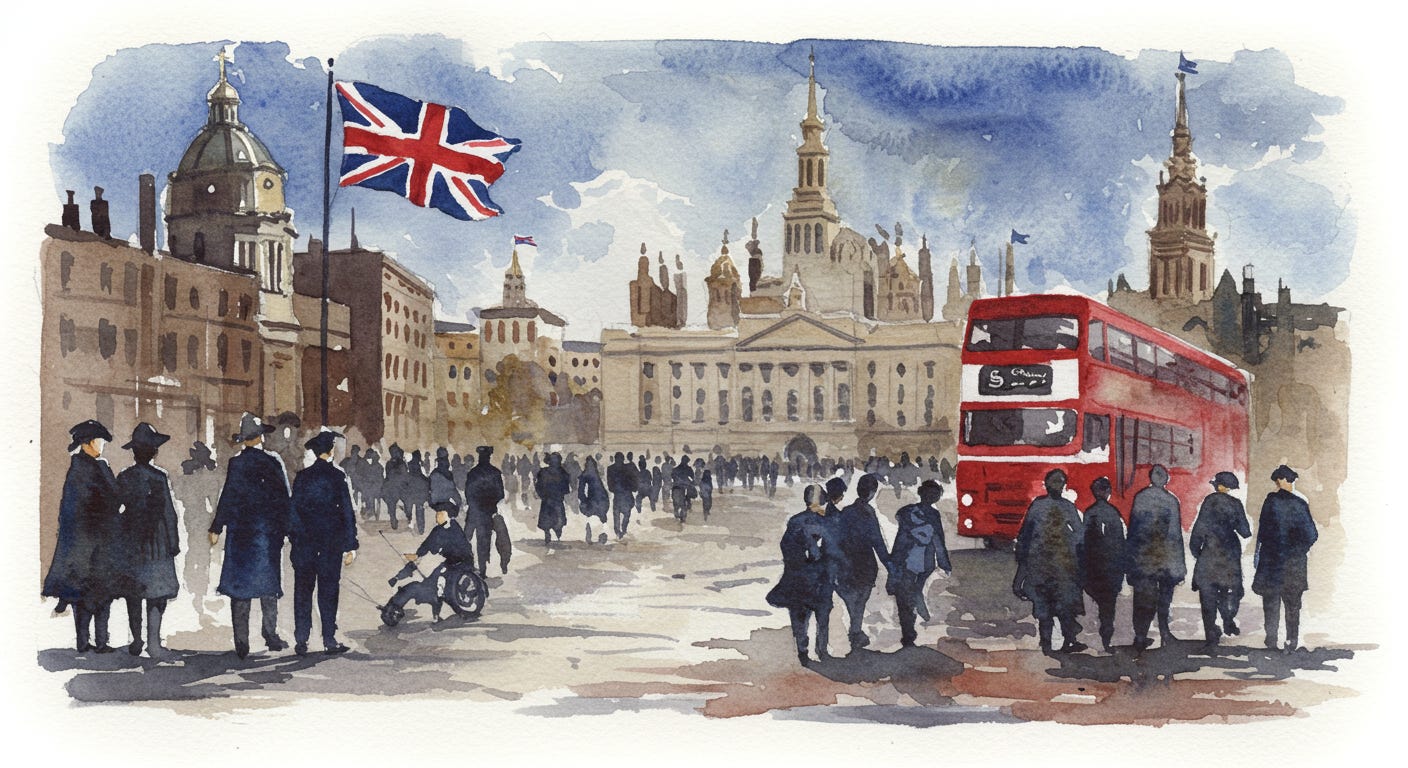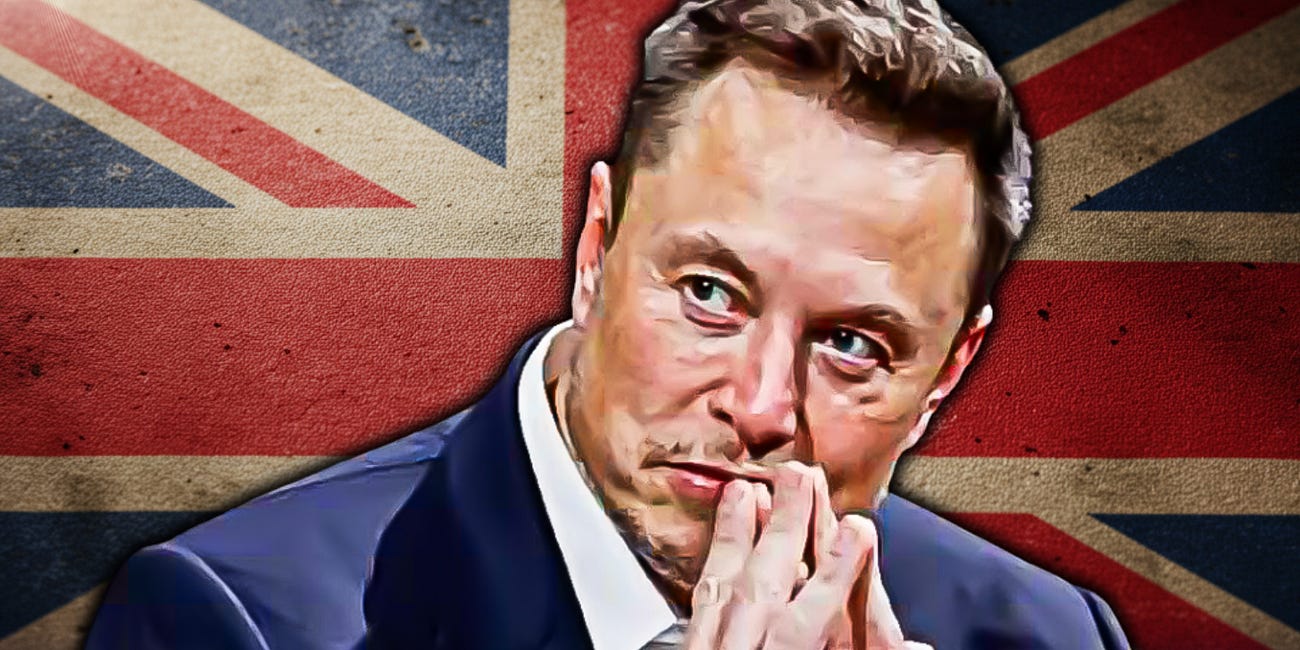We Need to Have a Conversation About Ethnonationalism
Looking past the panic to what’s really driving the debate
At Labour conference, Shabana Mahmood, who is on the left of UK politics, warned that patriotism in Britain is being squeezed into “something like ethno-nationalism.”
The word “ethnonationalism” always triggers strong reactions. For some, it is inseparable from the Holocaust, from apartheid, segregation, and forced expulsions. In that sense, of course it’s a problem. It has been used to justify brutality and racial hierarchy. If you strip away the emotional weight around the word, what it fundamentally describes is the idea of a nation held together by a shared ethnic identity: ancestry, language, culture, heritage. And that, in itself, is not inherently wrong.
Nations need some kind of anchor. A shared story, symbols, language, continuity. Without it you end up with fragmentation and alienation. There’s also the question of trust. Studies often show that more homogeneous societies have higher levels of social trust, especially if they’re backed by strong institutions. Japan and Iceland get cited all the time. The reasoning is obvious: when you share a common language and norms, cooperation is easier and conflict is less likely.
This is why I believe in a cultural baseline, set by the majority. It’s what holds society together for everyone else. Without that shared foundation, ordinary interactions become awkward moments of mistrust. I’ve seen this myself. I don’t think it’s ideal to walk through entire neighbourhoods in Britain and barely hear English. It makes me feel like an outsider, and I am an immigrant myself. So when people talk about diversity being this haven-like utopia, I just cannot take it seriously.
So can Britain be an ethnonational state? No. It was never founded that way. The UK is not a single ethnic nation but a union of different ones: English, Scottish, Welsh, Irish. That doesn’t mean ethnicity is irrelevant. These nations are rooted in real communities. Englishness, Scottishness, Welshness, Irishness. They give people a sense of rootedness. To ignore this is a mistake, but to elevate one as the singular “British ethnicity” would risk destabilising the whole union.
Is ethnonationalism rising? I think so, but most people in Britain would never call themselves ethnonationalists. The word is too tainted. In fact, most white Britons don’t think of themselves in ethnic terms anyway. I remember that this was one of the great frustrations of race activists after the killing of George Floyd. They constantly complained that white people did not see themselves as a race. They called it a privilege and wanted to raise white racial awareness.
So white Britons might not use the word “ethnicity,” but when they want to express belonging, they’ll talk about culture, tradition, way of life. It’s the same instinct. And if our civic story keeps falling apart, if institutions can’t tell us who we are, if our symbols are mocked, if the majority is told to apologise for its history, then of course people will eventually fall back on ethnic terms. This does not have to be hostile. It may simply be a quiet insistence that majority culture deserves recognition and respect, the same as any other.
The rise of ethnonational sentiment is the predictable outcome of decades of cultural, economic, and political choices. Mass immigration has rapidly altered towns and cities. Multiculturalism encouraged difference rather than integration. The majority culture has been treated as something awkward or even oppressive, while every minority identity is affirmed and celebrated.
Look at the reaction to Operation Raise the Colours, the campaign to fly the Union Jack and St George’s Cross. In most countries this would barely be controversial. In Britain it was mocked as jingoistic, sneered at as xenophobic, dismissed as empty theatre. Meanwhile, migrant communities are encouraged to fly their own flags, celebrate their own festivals, and maintain loyalty to their homelands. That is called enrichment. But when the majority does the same, it is branded dangerous. People notice this double standard, and it breeds resentment.
So where do we go from here? Simply condemning ethnonationalism, as Shabana Mahmood did, will not solve anything. Warnings do nothing to address the conditions that fuel it. What we need is confidence in a shared national story. Majority identity must be treated with the same respect given to minority identities. If Diwali and Eid are celebrated with pride, so can Easter. Britain “may not be a Christian country” anymore, but it certainly isn’t a Muslim or Hindu country either.
If we do not want ethnonationalism to rise and take root, then we have to treat majority culture as the foundation, not as a problem to be managed. The majority cannot be made to feel like strangers in their own land. A confident, grounded and respected majority culture is what gives everyone else the space to belong.
You might also like:
Is Elon Musk Helping Britain or Making Things Worse?
If you’re on X, you’ll have noticed that Elon Musk has been talking a lot about the UK lately. Among other things, he has been weighing in on immigration, asylum, crime, patriotism and politics. As always with Musk, the reaction is mixed. Some insist he is being irresponsible, causing division, spreading misinformation, even flirting with extremism. Oth…



